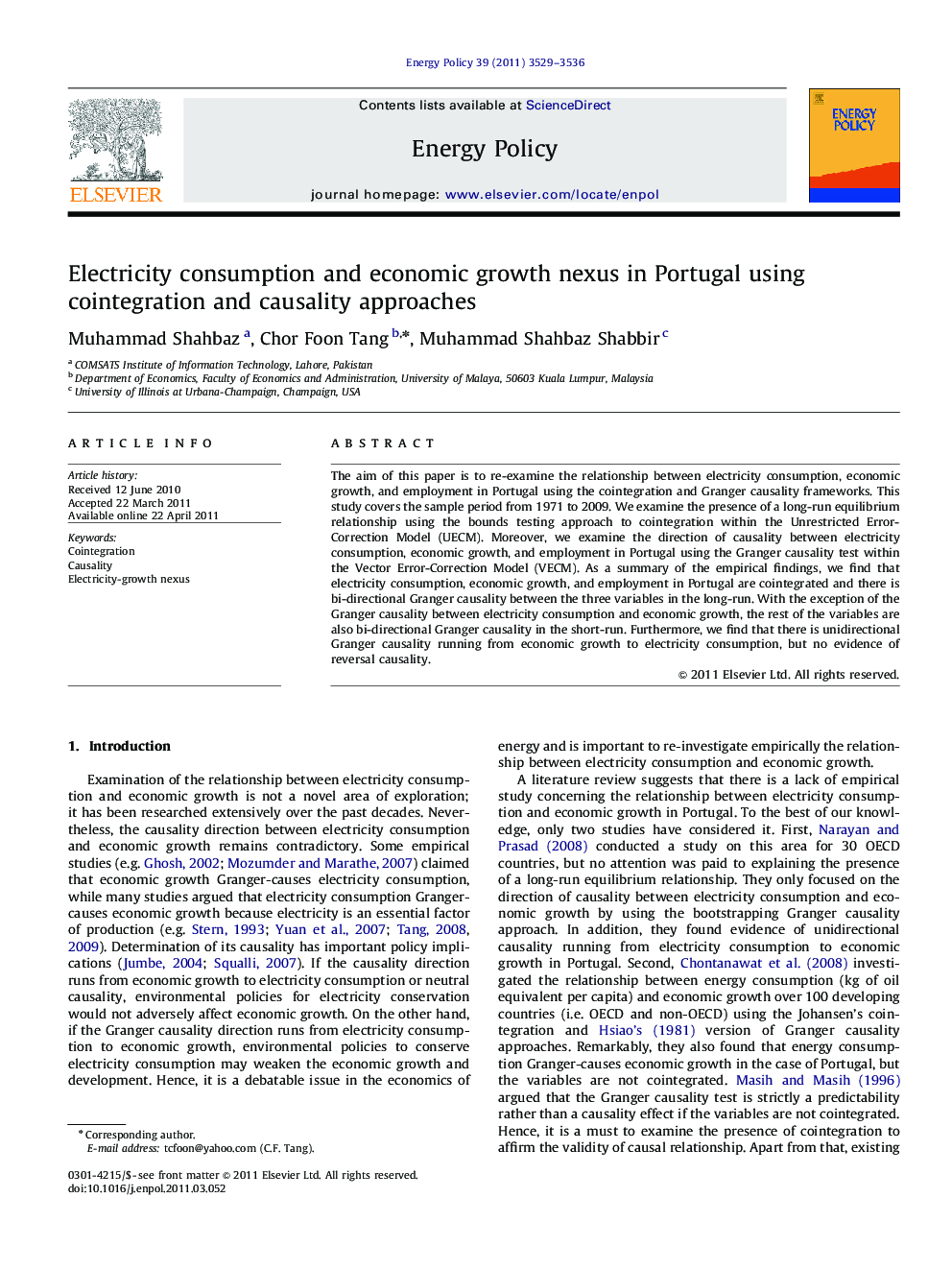| Article ID | Journal | Published Year | Pages | File Type |
|---|---|---|---|---|
| 994936 | Energy Policy | 2011 | 8 Pages |
The aim of this paper is to re-examine the relationship between electricity consumption, economic growth, and employment in Portugal using the cointegration and Granger causality frameworks. This study covers the sample period from 1971 to 2009. We examine the presence of a long-run equilibrium relationship using the bounds testing approach to cointegration within the Unrestricted Error-Correction Model (UECM). Moreover, we examine the direction of causality between electricity consumption, economic growth, and employment in Portugal using the Granger causality test within the Vector Error-Correction Model (VECM). As a summary of the empirical findings, we find that electricity consumption, economic growth, and employment in Portugal are cointegrated and there is bi-directional Granger causality between the three variables in the long-run. With the exception of the Granger causality between electricity consumption and economic growth, the rest of the variables are also bi-directional Granger causality in the short-run. Furthermore, we find that there is unidirectional Granger causality running from economic growth to electricity consumption, but no evidence of reversal causality.
► We re-examine the relationship between electricity consumption, economic growth, and employment in Portugal. ► The electricity consumption and economic growth is causing each other in the long-run. ► In the short-run, economic growth Granger-cause electricity consumption, but no evidence of reversal causality. ► Energy conservation policy will deteriorate the process of economic growth in the long-run. ► Portugal should increase investment on R&D to design new energy savings technology.
